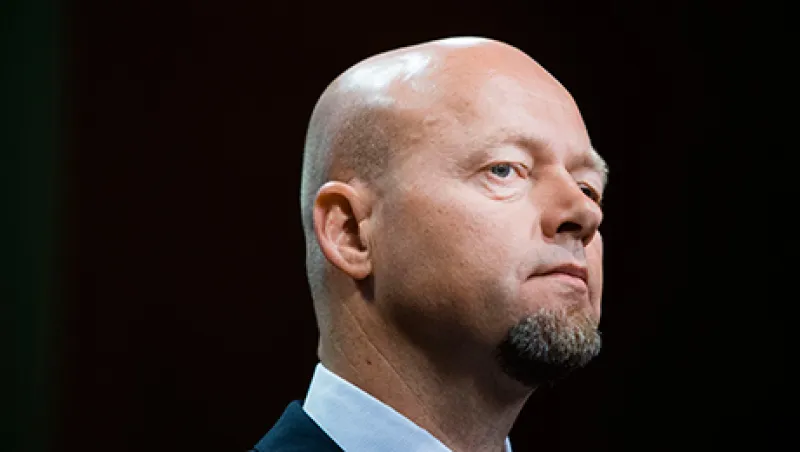The Government Pension Fund of Norway (formerly known as the Petroleum Fund), the world’s largest sovereign investor, announced Wednesday that its portfolio retreated by some $32 billion, or 4.9 percent, in value during the third quarter, a result of falling Chinese equities and the Volkswagen emissions scandal. For CEO Yngve Slyngstad, the decline comes at an inopportune time: The Norwegian government is preparing to withdraw funds from the portfolio for the first time as declining oil revenues fail to meet budgetary shortfalls. In advance of today’s announcement from the Federal Reserve on U.S. interest rates, the Shanghai Composite slumped 1.7 percent, spurring similar declines among most Asian exchanges.
Walgreens to buy Rite Aid. On Tuesday, Walgreens Boots Alliance, headquartered in Deerfield, Illinois, announced an agreement to purchase Camp Hill, Pennsylvania-based Rite Aid Corp. for $17 billion in a combined cash and debt which, if completed, would see the total number of locations for the combined company reach over 12,000, pulling ahead of rival CVS Health Corp., based in Woonsocket, Rhode Island. The proposed merger would also allow Walgreens to expand into managing prescription benefits for corporate clients, a business CVS is already established.
Deadline extended for Anheuser-Busch. The U.K. Panel on Takeovers and Mergers, the regulator responsible for approving mergers of public companies, agreed to extend the deadline for Leuven, Belgium’s Anheuser-Busch InBev to finalize details of its proposed merger with London’s SABMiller because of the scale and complexity of the post-merger integration. The two brewing giants will now have until November 4 to iron out details of the $106 billion transaction.
Sweden’s central bank boosts QE. On Wednesday, the Riksbank increased the scale of its quantitative-easing program by $7.6 billion in the fourth expansion year-to-date. Benchmark lending rates were left unchanged by policymakers with an accompanying statement indicating that the earliest target date for a possible hike has been delayed for six months.
Volkswagen earnings hit by scandal. Third-quarter results released by Wolfsburg, Germany-based Volkswagen today included an increase of operating profit of 17 percent versus the same period last year, which was offset by the expense of fallout from the emissions-test scandal that the company estimates at $7 billion. The carmaker told analysts of measures it has taken to ensure liquidity; the company now has over $27 billion in liquid funds. Volkswagen is addressing legal issues in multiple countries.
Apple sees record holiday sales on the way. Fourth fiscal-quarter earnings released by Apple included projections for record sales of $75.5 billion to $77.5 billion for the upcoming 2015 holiday season. The Cupertino, California-based tech giant reported net income of $1.96 a share driven by a 22 percent increase in sales versus the same period last year. Company executives noted that increased smartphone demand offset slower iPad sales during the quarter.
JPMorgan veteran takes the helm at Barclays. London bank Barclays today officially installed former JPMorgan Chase executive James “Jes” Staley as chief executive officer. In a statement, Staley indicated that cultural changes in response to heavy regulatory fines would be a priority, as he seeks to enhance shareholder returns.
Portfolio Perspectives: Puerto Rico Debt Presents Rare Buying Opportunity
Puerto Rico’s $72 billion debt crisis is made up of hundreds of different types of IOUs. Although many of Puerto Rico’s municipal bonds had already been on a rollercoaster ride the past few years, the government’s default announcement in July caused many of their bonds to crater. But each of Puerto Rico’s bond issues should be valued individually based on their degree of credit quality and risk.
Many lower-risk bonds are now trading at fire-sale prices because of the company they keep, presenting a rare opportunity to find diamonds in the rough. Some long-dated, sales-tax bonds are trading for as little as 12 cents on the dollar. Some short-dated university bonds are showing a yield to worst (the lowest an investor can expect) of 100 percent, while trading for 49 cents on the dollar. Plenty of Puerto Rico bonds backed by sales tax are trading at a 40 percent discount to real value. The Commonwealth makes up for its poor track record for collecting income tax with sales tax, which it hiked from 7 percent to 11.5 percent in July.
Just a few years ago at the height of the $360 billion Greek economic crisis, bond prices crashed before Greece’s debt restructuring. As part of the bailout, some bondholders accepted losses as high as 74 percent on their holdings, presumably from par. In return, Greece received a mega-bailout package, which caused many bond prices to rally 80 percent from their lows.
Recently news emerged that the U.S. Treasury is reportedly considering issuing a “Super bond” to help restructure the commonwealth’s debts. A Super bond could result in two outcomes:
1) It motivates Congress to authorize bankruptcy. Legislation was previously introduced to allow Chapter 9 bankruptcy protection, which Puerto Rico is currently not entitled to.
2) It’s a serious proposal that will result in an inevitable bailout by the U.S. government.
If Puerto Rico gets a bailout like Greece, a distressed investment in its bonds could turn into another home run for investors.
Robert Kane is the CEO of BondView, a provider of municipal bond data and analytics, in Roslyn Heights, New York.






